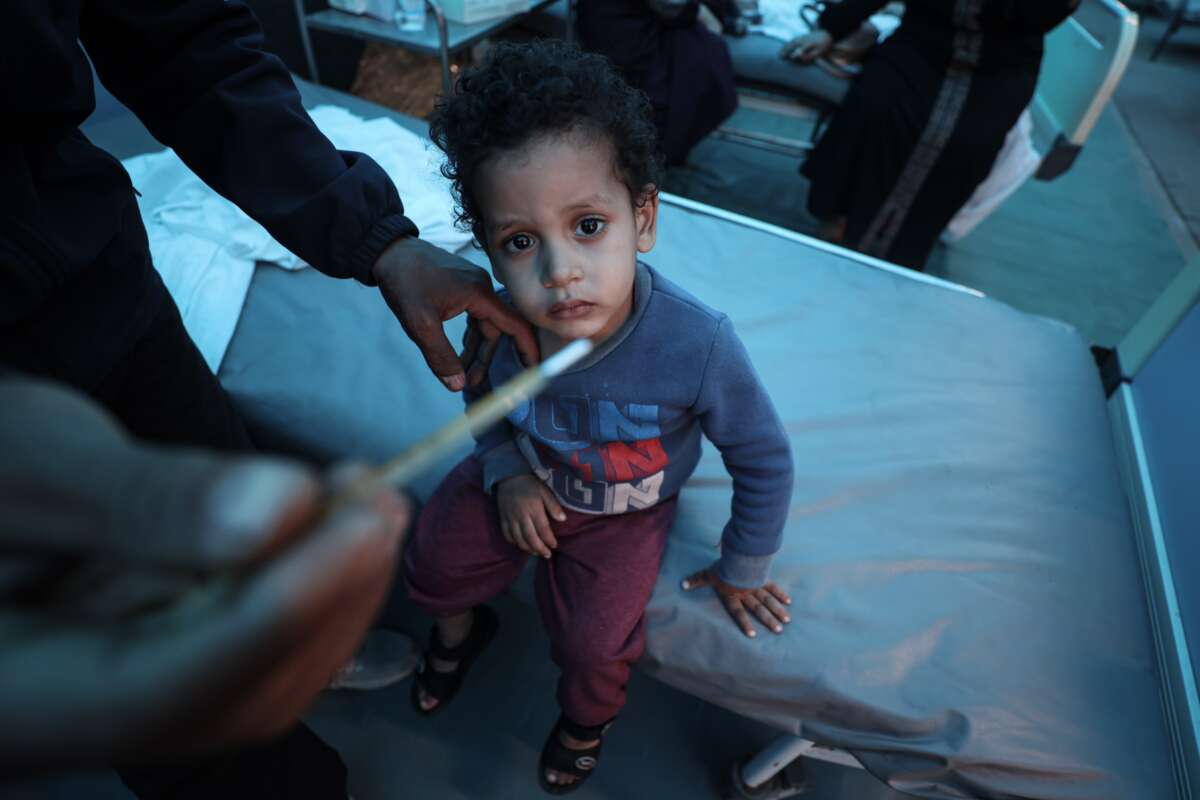Health and humanitarian officials have reported recording over 360,000 cases of infectious diseases in shelters in Gaza as Israel continues its blockade of basic needs and overcrowding and sewage are overwhelming the region.
The UN Relief and Works Agency (UNRWA) and the Palestinian ministry of health have reported the findings in recent days, noting that the true number is likely higher. According to World Health Organization (WHO) officials, the diseases include meningitis, jaundice, impetigo, chickenpox and upper respiratory infections.
This amounts to one infectious disease for every six Palestinians in Gaza on average. It doesn’t include infectious diseases among people who are not in shelters, with about 1.3 million of the 2.2 million people in Gaza sheltering in UN facilities as of last week, according to the UNRWA. Southern and central shelters are at around four times their capacity on average, the agency says.
Israel’s relentless bombardment of Gaza has killed at least 20,000 Palestinians so far, including at least 7,700 children. More than 52,000 people have been injured.
Many of the deaths have come as a result of Israel’s genocidal bombing campaign, with the Israeli military dropping tens of thousands of bombs on the densely-packed region in less than three months. But the WHO has warned that disease could soon become a leading cause of death in Gaza as Israel continues to block water, electricity, food, hygiene items and other humanitarian supplies from entering the region.
Disease is spreading extremely quickly. According to WHO data, between November 30 and December 10 — less than two weeks’ time — cases of diarrhea in children under five increased by 66 percent, to 59,895 cases in total, while cases among the general population jumped by 55 percent.
Maintaining hygiene has become extremely difficult, if not impossible, with the vast majority of the water in the region undrinkable and little to no access to toilets or showers. As of this week, there was only one toilet for every 486 people in shelters in Rafah, where there are over 12,000 people per square kilometer, or roughly over 31,000 people per square mile. Sewage is flowing into the streets, with all key sanitation services no longer operational.
Palestinians in Gaza have few options for getting treatment for these diseases. The health system is, in effect, collapsed, with 21 of the region’s 36 hospitals closed and the rest retaining only part of their functionality. Medicine, even within hospitals, is scarce.
There is “no sanitation” in Gaza, UNICEF spokesperson James Elder said in a press conference on Tuesday. “Currently in Gaza, there’s on average around one toilet for 700 children and families. Relocate families to places where there is no toilet and it’s tens of thousands of people resorting to buckets, or open defecation. And so without water and sanitation, nor shelter, these so-called safe zones have become zones of disease,” Elder said.
“I’m furious. I’m furious that those with power shrug at the humanitarian nightmares unleashed on 1 million children. I’m furious that children who are recovering from amputations in hospitals are then killed in those hospitals,” Elder added later. “I’m furious that disease is as well-armed as the warring parties, but no, it gets absolutely no attention.”
Media that fights fascism
Truthout is funded almost entirely by readers — that’s why we can speak truth to power and cut against the mainstream narrative. But independent journalists at Truthout face mounting political repression under Trump.
We rely on your support to survive McCarthyist censorship. Please make a tax-deductible one-time or monthly donation.
